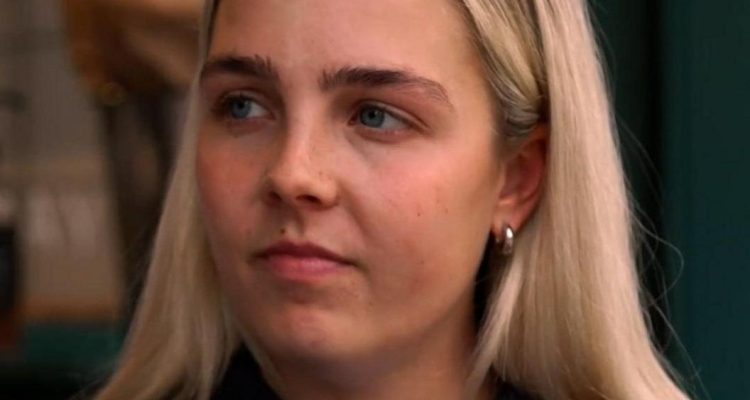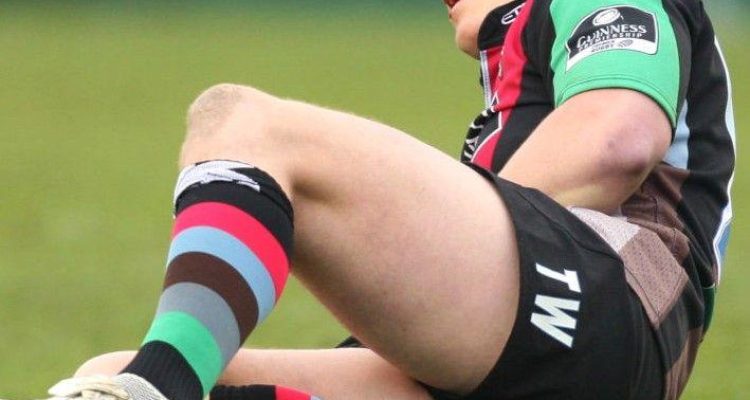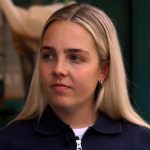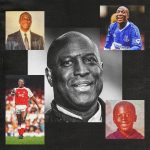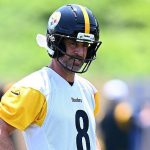How does Daniel Levy run Tottenham – and would he ever leave?
A popular chant among match-going Tottenham fans at the moment is: "I don't care about Levy, he doesn't care about me, all I care about is Kulusevski."
Prominent banners at the home defeat by Leicester last month read: "Our game is about glory, Levy's game is about greed" and "24 years, 16 managers, 1 trophy – time for change".
A crisis of about 30 separate injuries and poor form has left manager Ange Postecoglou exposed, irritable, and under pressure, with his side 14th in the Premier League and out of both domestic cups.
The debate about who or what is to blame for Spurs' struggles is going round in circles. Alongside Manchester United's failings and Manchester City's decline, it has been one of the narratives of this season.
Fan anger has again been aimed at chairman Daniel Levy – vocalised in persistent 'Levy out' calls from supporters both home and away.
Club sources told BBC Sport the protests are "hurting" Levy, who attends almost every game and sits stoically through the criticism.
Tottenham were one of the busiest clubs in the January transfer window, but that has not satisfied some fans who criticise a recruitment policy mainly focused on under-21 players with potential resale value, and who regularly accuse Levy of acting too slowly in the market and putting profits above success on the pitch.
A 'sit-down' protest – led by a smaller supporter group called Change for Tottenham (CFT) – is planned against Levy before Sunday's Premier League match against Manchester United.
Last week, the main fan group – the Tottenham Hotspur Supporters' Trust (THST) – released five core principles they want to hold Levy to account on.
Among those principles were demands to "commit to winning" with investment; "attract and retain talent" with competitive wages; "develop elite youth talent"; "lead with integrity" to be "financially sustainable" while "keeping tickets affordable"; and engage with fans.
BBC Sport has spoken to several people on and off the record to try to understand the fuller picture of Levy's Tottenham regime.
Some of the key points made were:
Levy will step aside when he feels it is right for Spurs and "every option is open" for different future ownership structures
He is "hurt" by protests, "hurt" by results, and has opted to sit through the 'Levy out' chants rather than hide away
An acceptance Spurs have not always spent well in the transfer market but belief that recent managers, including Postecoglou, have been backed financially
Club leadership feel they have come closer to winning more than just the 2008 League Cup in the Enic/Levy era having reached 15 semi-finals and six finals
Sources who have worked with Levy say he does not communicate well enough and suggest the executive team are too similar, hence occasional "own goals" on policies.
A banner asking for change was displayed at full-time after Tottenham lost at home to Leicester in January
Football finance expert Kieran Maguire says any discussion of Levy's tenure must be framed by Tottenham becoming the "most profitable club in Premier League history" because of the money their new stadium generates, a historically lower wage structure and a "degree of caution" on transfer spending.
He describes Spurs as a "superb cash-making machine" who have "outperformed any other club in England".
His figures show that from 2001 to 2023, Tottenham made £171m profit. Burnley were second on £159m, with Arsenal third on £105m
In the past decade, Spurs have the sixth-highest total wage bill in the Premier League (£1.6bn vs Man City's £2.9bn as the highest); the sixth-highest transfer spend (£1.3bn vs Chelsea's £2.8bn as the most); with the fifth-highest net spend over a similar period
Tottenham fans pay among the highest season ticket prices and matchday prices in the top flight
Levy has the highest chief executive pay of Premier League clubs that declare such data. In 2023, the most recent figures available, Spurs' highest-paid director – unnamed but assumed to be Levy – earned £6.6m.
Daniel Levy has been Tottenham's chairman since 2001
Club insiders describe Levy, 63, as "shy, quiet and hard-working" – and a man who loves the club and is affected by fan criticism. Multiple sources who know him have expressed respect for Tottenham's progress under his leadership.
One source with knowledge of the inner workings of the club, who wished to remain anonymous, said Levy can be "very ruthless" but "genuinely wants the best for Spurs".
They claimed some of the "own goals" – such as using thegovernment furlough scheme during Covid in 2020and more recently phasing outsenior concession tickets- are partly because Levy does not "surround himself with the best people".
They described the executive leadership and club board, which includes operations and finance director Matthew Collecott and executive director Donna-Maria Cullen, as "people too similar to him" who will "sit with their heads in their phones", rather than "people who make up for [Levy's] weaknesses".
The source said Levy does not successfully deliver his messages about caring for the club because he is not a strong public speaker and chooses to avoid it, adding: "One interview or being visible once a year is not a lot."
While Tottenham's football structure has changed frequently, including technical directors, managing directors and heads of football operations, sources say the club rigidly sticks to "Levy's philosophy and recruitment policy – to buy young players with promise who can add value".
Another source who has worked with Levy in the Spurs hierarchy, also speaking anonymously, backed his passion for the club and said the idea the chairman does not care because he rarely shows emotion is "nonsense".
They added that Levy is unrelenting – working "crazy" hours which can be tough and tiring for colleagues – and always wants more, something which can grate with people who do not like that style of leadership.
From the archive: Inside Levy's 20 years at Tottenham (2021)
Postecoglou unsure on future – but why do many Spurs fans blame Levy?
Is Postecoglou's style causing Tottenham's injury crisis?
Sources at the club believe Levy will step aside when he feels it is right for Tottenham.
They say he would not be motivated by vanity to stay on if there was an outright takeover – and the club remains open to investment with all future ownership structures on the table.
While Levy may be the focal point of protests, it was stressed that he is a minority shareholder of the club through his own family trust – and Enic, itself mostly owned by the Lewis family trust, remains the majority owner.
That means any change or purchase would need approval from the Lewis family, and there are other minority shareholders with a say.
During the current protests, the THST has expressed frustration but has not called for Levy to leave, unlike CFT, which is a smaller splinter group looking to apply pressure in internal fan politics and towards the club.
Other sources agreed the only realistic way in which Levy would leave Spurs would be on his own terms. He is the Premier League's highest-paid chief executive – earning an estimated £50m-plus over his 25 years in charge.
This week a Guardian article reported potential interest in Tottenham from an unnamed Qatari consortium, although sources with knowledge of Spurs' ownership situation played it down.
In 2023, when Paris St-Germain's owners Qatari Sports Investment (QSI) were exploring the possibility of a minority stake in an English club, Tottenham were one of the teams linked. Levy maintains a close relationship with PSG and QSI chairman Nasser Al-Khelaifi.
One source added that Levy – a renowned negotiator famously described by Sir Alex Ferguson as "more painful [to deal with] than a hip replacement" – will demand a high price for Spurs given their elite facilities, brand, London premium and the revenue the club now generates.
Various reports in recent years have valued Tottenham at between £3.5bn and £4bn.
Chelsea were bought in a deal worth up to £4.25bn from Roman Abramovich in 2022 by a consortium led by American investor Todd Boehly and private equity firm Clearlake Capital. The purchase price was £2.5bn with a commitment to spending £1.75bn over the next 10 years.
Meanwhile, Sir Jim Ratcliffe's Ineos bought a 25% stake in Manchester United for £1.03bn in December 2023 in a process which included a rival bid from Qatar's Sheikh Jassim, reported to be nearer to £5bn for 100% of the club.
Despite those huge sums, both clubs – unlike Tottenham – need major investment in their stadiums to unlock bigger commercial earning potential.
According to the first source, the period when Tottenham were building their new £1.2bn stadium, between 2017 and 2019, meant Levy was "all-consumed" and the board "left everyone to do their jobs".
Spurs secured Champions League football under Mauricio Pochettino for four successive seasons to 2018-19 – and were beaten in the 2019 final by Liverpool.
That source suggested Levy's approach – namely "open to conversations but set in his ways" – has meant a lot of people with off-field expertise have left Spurs over the years for more influential jobs.
Paul Barber was an executive director between 2005-2010 and is now Brighton chief executive; Michael Edwards was Spurs' chief analyst from 2009-2011 before leaving for Liverpool; FA technical director John McDermott was Tottenham's head of academy and player development until 2020; while EFL chief executive Trevor Birch was – very briefly – Tottenham's director of football operations, from September 2020 to January 2021.
It could be argued that many of these highly-rated executives enjoyed good careers at Tottenham before simply moving on – but the source claims they "left the building far too easily".
Another source to have worked closely with Levy at Spurs, again speaking anonymously, pointed out he has delivered "a core infrastructure that is probably the best in the world" and suggested that would give the club "an incredible foundation for future success – probably after Daniel's time".
They said it had taken Arsenal 10 to 15 years to get back to competing for titles and regularly qualifying for Champions League football after they rebuilt their infrastructure, with Levy having inherited a dilapidated stadium, old training ground and ageing squad.
However, the source suggested Levy has not yet got the "formula right" by employing the right head coach with the right players at the same time.
One criticism some fans have consistently aimed at Levy and Tottenham's executive board is a lack of understanding of what it takes to succeed on the pitch.
Levy, Collecott and Cullen have worked together for a quarter of a century – one source described them as "the Holy Trinity to an extent" – with the chairman known to be "loyal to people loyal to him".
They are supported at the top level by director of football administration and governance Rebecca Caplehorn and non-executive director Jonathan Turner.
The source said that in their experience at Tottenham there was no block on outside or different views, but it can be hard for newcomers especially those without an affinity to Spurs.
They added that Levy, Collecott, 56, and Cullen, 61 are "probably an unbreakable group" given their longevity and close relationships, but did stress they will not be at Tottenham forever.
It was suggested to BBC Sport that personal factors such as age and the trio's own health or the health of relatives could lead them to "re-evaluate".
Sources inside the club accepted the various backgrounds of people on Tottenham's board mean they know more about business than football, but pointed out that another six-person board – which includes chief football officer Scott Munn and technical director Johan Lange – sits underneath to advise on all football decisions.
They will have a major say on any managerial appointments, while transfers are led by Lange and only finalised by Levy – with Munn running the rest of the football operation.
Tottenham insiders accept they have not always spent well, and have made transfer mistakes in the past, but believe they have backed recent managers – including Postecoglou – and are happy with deals such as those for Dominic Solanke, Archie Gray and Lucas Bergvall.
It is also felt that raising profits to record levels is the only way Tottenham can compete with teams like Man City and Newcastle and their ownership models.
Spurs sources feel they have been close to winning more trophies than just one trophy in the Enic/Levy era – having reached 15 semi-finals and six finals – and the five other clubs in the 'traditional top six' are either richer or bigger.
"We don't make any apologies that we are trying to increase our revenue base to invest more in our teams if that means raising money through concerts to invest in the teams then I don't apologise at all," Levy said at September's fan forum.
"We announced with our last results that we believe this club needs a bigger capital base because we've got a lot of exciting projects on the horizon and we want to make further investment in the teams. Some form of minority investment is what we're looking for."
In a further defence of Levy, one source pointed to fan discontent at Arsenal owner Stan Kroenke in 2019 and 2021, as well as Manchester United's 12 months of troubles under new co-owner Ratcliffe.
They believe a "vocal minority" of fans simply want success now, but should be careful what they wish for with calls for change.
They added: "Spurs haven't got the formula on the pitch just yet but it will come."
Latest Tottenham news, analysis and fan views
Get Tottenham news sent straight to your phone

